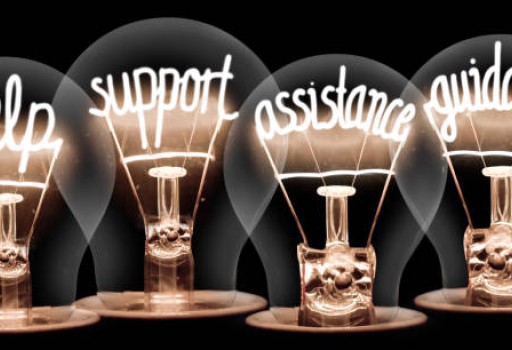16 April 2020
Covid-19 - Further Business Support Announced
Authors

Tax changes, consultancy services, commercial landlords and tenant updates.
The Government, on 15 April 2020, announced further policies to assist businesses affected by COVID-19.The assistance can be split into three categories. First, tax changes. Second, access to business consultancy services. Third, specific measures aimed at commercial landlords and tenants.
We deal with those below and, in particular, discuss what commercial landlords and tenants need to do as a result of the latest announcement.
Tax changes
The tax measures announced include:
Allowing the IRD to increase flexibility for taxpayers affected by COVID-19. This could include extending deadlines for filing tax returns and paying provisional or terminal tax. This is intended to apply for an 18 month period.
Changing the tax loss continuity rules. This is intended to assist with businesses raising additional capital to operate and will apply for the 2020-21 and later income years.
A tax loss carry-back scheme. This is intended to allow a business to offset a loss in a particular tax year against profit in a previous year and receive a refund of the tax paid in the previous profitable year.
We recommend that all businesses discuss the tax measures with their tax advisor. Further tax measures information can be found on this website.
Consultancy support
Further support is offered to businesses to obtain specialist services. This includes business continuity planning, finance and cash flow management and HR and staffing issues.
This will include an extension of existing helplines operated by the Employers and Manufacturers Association and the Canterbury Chamber of Employment and Commerce.
For an example of the support offered, visit this website.
Landlord and tenant
The Government intends to change the timeframes applying to all notices of intention to cancel a commercial lease and notices to exercise certain powers under a mortgage. These are temporary changes and will cease to apply at a time in the future.
Landlord’s mortgage payments
Changes to the timeframes for mortgage enforcement which can be taken by a mortgagee (a bank for example) will assist landlords with a mortgage. Mortgage enforcement includes a power of mortgagee sale or a power to take possession of a property.
The proposal is to change the required notice period before a mortgagee can sell or take possession of the mortgaged property to 40 working days (from 20 working days). The notice period for mortgaged goods changes to 30 working days (from 10 working days).
This will assist landlords with more time to arrange for the remedy of any breach of mortgage, resulting from a lack of cash flow after COVID-19.
Lease default
To cancel a commercial lease for a tenant’s default, a landlord must follow certain requirements. The requirements include two components. First, the default must continue for a minimum timeframe. Second, the default must still exist after a minimum timeframe has passed after a prescribed notice has been given to the tenant (or other required parties) in accordance with legislation.
The timeframes for those two components will be extended to 30 working days (from 10 working days, but the timeframes for those two components can still overlap).
This will assist tenants with more time to arrange for the remedy of any breach of lease, such as non-payment of rent or outgoings that result from a lack of cash flow after COVID-19.
Where to from here for landlords and tenants?
The Government has chosen not to interfere with the terms of lease contracts. The Government has also chosen not to provide any specific subsidy for either landlords or tenants aimed at rent relief.
Where does that leave landlords and tenants? Some tenants are going to have cash flow problems in the short to medium term and (likely) profitably issues as well.
If they have not already, landlords and tenants need to do the following:
Ascertain whether their lease has an abatement (rent reduction) provision in it, where access to the leased premises is restricted. You always need to review the specific terms of the lease. We issued an article on lease forms and rent reduction provisions, here.
If the lease has an abatement (rent reduction) provision and it provides for a “fair proportion” to cease being payable, reach agreement on what that fair proportion will be. There is no magic formula to apply. An important issue to look at is whether the business carried out from the leased premises is, or part of it is, an “essential business” during Alert Level 4, and whether future Alert Levels 3 and 2 will also affect the tenant’s ability to operate from the leased premises. We issued an article on this issue, here.
If a tenant is experiencing cash flow problems, or anticipates cash flow problems, then the tenant needs to prompt a discussion with the landlord and request some sort of rent relief to assist the tenant’s business.
What can be agreed as to rent relief?
If both the landlord and the tenant take a long term view of the tenant’s occupation of the premises, then the parties are far more likely to be able to negotiate some rent relief.
We will issue a further article dealing with specific issues to consider in negotiating rent relief.
Any arrangement reached on rent relief is a variation to the terms of the lease (note that this does not apply if you are only agreeing on what a “fair proportion” is under an abatement (rent reduction) clause in the lease). In order to ensure that a rent relief arrangement is binding on the parties, a formal deed should be signed by the parties.
We recommend that you speak to your legal advisor before committing to any rent relief arrangement.
Concluding Comments
The Government’s further business support announcement on 15 April 2020 does not reduce the tension between commercial landlords and tenants as to lease payments due, either during the Alert Level 4 lockdown or the resulting period of trading disruption which COVID-19 will cause.
Both landlords and tenants will need to review the updated restrictions that apply during the Government’s Alert Levels 3 and 2, once they are finalised and released.
It is up to each landlord and tenant to reflect on how the COVID-19 situation will affect the business carried on from the leased premises and then, if required, reach an agreement on rent relief that will allow that business to continue operating long term. This will benefit both the landlord and the tenant.
Please do not hesitate to get in contact with us should you require any advice (whether related to leasing, or otherwise). The SRB Team are available to provide advice regarding matters discussed in this article.
Disclaimer
The above information is of a general nature only. The information in this article does in no way constitute legal advice and all readers should contact a law firm for advice relating to your specific circumstances.









